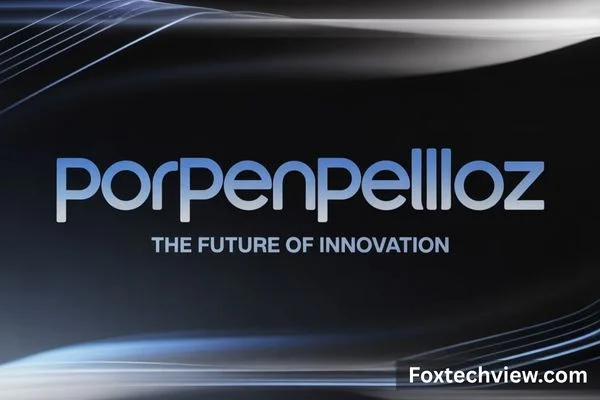
Source: FoxTechView.com
Introduction
Construction and demolition procurement in Italy is regulated to provide safety, transparency, and competency in the procurement. Among other factors that play a leading role in this system is the SOA OS23 qualification – the qualification of companies conducting demolition works in government contracts. With a modernization of the laws of the procurements in Italy, more environmental imperatives, and pressure on increased responsiveness, SOA OS23 grows more imperative. This paper will discuss the direction of public contracts with SOA OS23 the trends, challenges and opportunities and the way a firm can prepare.
What is SOA OS23
The Italian SOA certification system includes a specific category called SOA OS23. It authorizes the fact that a firm has technical, financial and organizational ability of undertaking demolition work within laws governing contracts in the public. This involves total or partial destruction of civil or industrial buildings, management of hazardous substances, dismantling, controlled application of specialized tools or methods, collection and disposal of waste materials and environmental protection.
In order to be in a position to bid on government demolition projects over some specific financial limit (in most situations- €150,000 and above) one must have the OS23 certification in place.
Current Drivers of Change
A number of forces are influencing the development of SOA OS23-qualified public contracts:
Regulatory Reform
The regime of public procurement in Italy has been revised in recent times and through the receipt of a new Public Contracts Code which is Legislative Decree 36/2023, which affects qualification requirements, thresholds and supervision. danbutin.org+2LearnHole+2.
Environmental Pressure Sustainability.
Laws on the environment and social requirements are subjecting an ever-increasing pressure on greener forms of demolition: greater control of demolition wastes, separation and recycles, minimization of emissions, and consideration of hazardous materials. Under OS23. thetipsygypsies.net+2LearnHole+2, firms will be expected to demonstrate such competencies.
Digitalization and technological Innovation.
Public contracts are becoming more coloured in tools like the BIM (Building Information Modelling), GIS (Geographic Information Systems) and digital workflows, both in planning and in oversight. Also, the digital credentialing of certifications and more transparent records, and even blockchain aspects of credential verification can become more of a standard.
Incentive Program Demand.
The incentive programs of government (such as seismic resiliencies, energy-saving, urban renewal, etc.) usually necessitate or prefer companies with certification such as OS23. These schemes encourage the need of demolition in redevelopment or retrofitting.
Financial Thresholds and Classifications.
The structure of OS23 is in the form of classes (classifiche) that determine the maximum value of the contract that a certified company is permitted to offer. Increasing their OS23 class is an important strategic decision as firms expand or desire to vie on bigger tenders.
What the Future Contracts Will Demand
Considering these motivators, the public contracts of SOA OS23 can tend to demand additional contractors in several aspects:
- Greater Environmental Responsibilities: Demolition works will require strict adherence to waste management, recycling and minimization of the environmental effect. Provision of low emitting machinery or sustainable methods may become scoring points.
- Greater Technical Detail and Documentation: Plans should contain proper digital models, safety and hazard analysis, demonstration of previous experience, requirements of machinery and staff of qualification.
- Improved Finance and Organization Ability: Tendering companies will require good financial reports, evidence of stable business, and ability to carry out huge or complicated projects.
- Digitalization and Openness of Operations: Bid, certification renewal, or compliance control will become more efficient with digital tools that will make the processes less time-consuming and more accountable.
- Positive Change in Classification: The firms will seek to move up the class under OS23 to be able to bid bigger contracts. This implies that an investment is done in capabilities that look at future tender value.
Challenges Ahead
As much as these changes create opportunities, they create challenges:
- Cost of Compliance: OS23 acquisition/maintenance, machinery upgrade, training employees, digital system, environmental compliance – all these have monetary costs. Smaller companies can have a limitation of resources.
- Difficulty in Documentation: Some of the information required to prove the experience and technical specifications, available finances, environmental safety, etc. may be hard to obtain, particularly when previous work was not documented.
- Uncertainty in Regulations: With the changing legislation and codes of conduct, the requirements of OS23 can change. It is critical to keep abreast of times.
- Competition: More companies will pursue OS23 certifications or advanced classes which will boost competition. Companies that lack high qualifications can be sidelined.
Preparation Firm Strategies.
The firms, which intend to succeed in these new conditions of the public contracts, must take into account:
- Make an early investment in the capability: Begin finding ways of documenting past work in a way that is understandable, invest in safety, environmental, technical capacity even when not required by tender.
- Class upgrades: Intend to seek higher OS23 class where feasible; although the need is not urgent, such a course of action will permit access to bigger contracts.
- Technology implementation: BIM, digital modeling, project management software, digital documentation, communication and compliance
- Sustainability practices: Recycling, reduction of emissions, and handling of wastes properly, and environmental impact reduction as a normal operation.
- Professional and legal advice: Hire SOA-certification consultants, law experts on government procurement, environmental law, and so that work is not disqualified.
Prospect: How the Contract Landscape Will Appear?
Italian public contracts in the area of demolition will continue to become more in the coming years:
- Selective: Firms that have better OS23 classes and high environmental, safety and technical qualifications will only be awarded tenders.
- Open and transparent: Auditing will become less complicated with the advent of digitization; the authorities will require more visibility of workflows, materials, credentials.
- Combined with other Public Policy Objectives: Demolition works will not be solitary: they will be included in urban renewal, climate resilience, energy efficiency, and sustainability initiatives.
- Competitive not only on price: Bids will be assessed not only on the lowest cost, but on the ability of the bid to achieve the best standards in terms of safety, sustainability, technical sophistication and risk management.
Conclusion
SOA OS23 has its future perspectives in increased standards, increased sustainability, and digital transparency in the field of public contracts. The demolition and special construction companies cannot afford to see certification as a ticket to the tender anymore since it is a demonstration of professional ability and ecological sensitivity as well as flexibility. Companies investing in documentation, technology, environmental procedures, and greater OS23 classifications will be in the best situation to secure huge and complex contracts. With changing procurement environment, SOA OS23 will continue to be one of the pillars of what constitutes a qualified contractor, and the public contracts will reward those who stay on top of the changes.
Read More Informative Article Visit This Site: FoxTechView
FAQs
❓ What does SOA stand for?
Answer:
Depending upon the context, SOA may refer to various things:
- Public contracts and construction (Italy): SOA is a Società Organismi di Attestazione. They are government approved certification agencies that determine whether a company is capable of undertaking contracts in government works of a specified amount of finances.
- In technology: SOA can be understood as Service-Oriented Architecture, which is a design principle in software engineering in which services are offered to other elements through the network.
- In pop culture (TV): SOA is generally known as a short name of Sons of Anarchy which is an American television series based on an outlaw motorcycle club.
❓ What does SAMCRO in SOA mean?
Answer:
SAMCRO, which is short of Sons of Anarchy Motorcycle Club Redwood Original is used in the Sons of Anarchy television series (SOA). It is the charter of the motorcycle club that was founded in Charming, California. The acronym highlights the formation of the group and how it was the first chapter of the club.
❓ Are SOA certificates valid?
Answer:
Yes, when they are issued by the officially recognized certification bodies in Italy, then SOA certificates are valid. These certificates demonstrate the technical, financial, and organizational appropriateness of a construction company to engage in government contracts in the field of works.
- Validity period: A SOA certificate has a standard duration of 5 years although it must be reviewed after 3 years of operation to be renewed.
- Scope: they are applicable only in terms of categories (e.g., OS23 demolition) and classification (contract value ranges) of which the company is certified.
❓ What are the two types of SOA?
Answer:
The two types of SOA are generally taken to mean:
In Technology (Service-Oriented architecture):
- Stateless SOA: Services are not storing client data in between requests.
- Stateful SOA: Services retain data in an assortment of demands.
- Italian Public Works Certification: (Societa Organismi di Attestazione):
Though not commonly divided into two types SOA certificates may be categorized into:
- General Categories (OG): General constructions, commonly buildings, roads or railways.
- Specialty categories (OS): Include a limited type of trade or technical area, e.g. demolition (OS23), electrical systems (OS30), or water networks (OS3).







